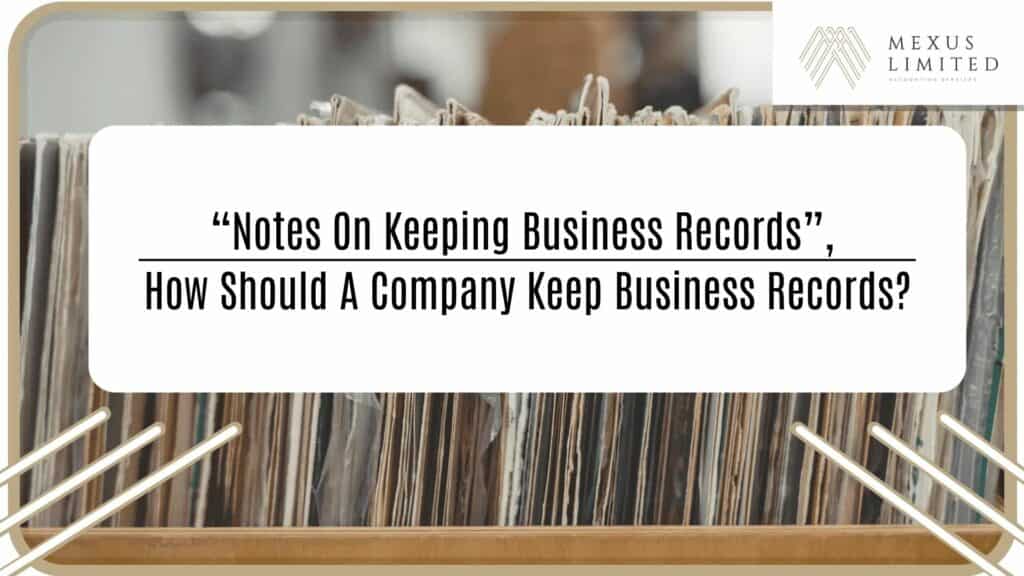“Notes on Keeping Business Records”, how should a company keep business records?

Accurate business records are crucial to grasping a company’s financial status and fulfilling the duty of keeping business records under the Inland Revenue Ordinance. Below is an introduction to how a company should keep its business records properly, but if you have more in-depth questions, you are advised to seek advice from an accountant.
Keep records of income and expenses
You can use different methods to record sales, revenue, etc., including:
• Cash register tape built into the register
(Must ensure that all sales have been put into the aircraft and confirmed the date);
• Receipt
(The business name should preferably be printed on each receipt);
• Sales Invoice
(Sequentially numbered invoices should be issued for goods or services, setting out important information including date, customer name, business name, quantity, and price);
• Notebooks, account books, and more.
As for the purchase and expenditure records, the payment should be paid by cheque as far as possible, to keep and record.
The petty cash system is handled and as far as possible asks for receipts, keeps invoices, etc.
For daily business-related expenses, such as rent, electricity, telephone, insurance, and car expenses, please keep as much as possible the receipts, and for credit card payments, please keep the credit card statement and receipt, as well as regular and monthly credit card statements, check.
All purchased assets, including business tools, premises, buildings, etc., should also record the transaction date, payment amount, etc. Fixed Assets Register, etc.
Keep bank records
Here are some practical tips for keeping bank records:
• Business bank accounts should be managed separately from personal bank accounts;
• The business name needs to be displayed in the company account;
• Regularly deposit business income into business accounts;
• Pay your expenses by cheque and have every detail listed on your bank statement for a permanent record.
• When using the checkbook, please make sure to fill in the amount, date of payment, name of the payee, details of relevant expenses;
• Please store the used checkbook properly for future reference;
• Keep customer deposit receipts as far as possible;
• Periodically compare the cash book records with the bank statement and adjust the relevant differences, known as bank reconciliation.
What should I do if I take delivery for personal use and return it?
It should be noted that if there is an occasion for picking up the goods for personal use, it should be recorded in the relevant information in detail and deducted from the cost in a fair and reasonable manner.
In addition, if the goods need to be returned, they also need to be recorded in detail, including the number of returns, the reason for the return, and the corresponding sales adjustments. Afterward, it is also best for the company to issue a notice to the customer setting out the basis for amending the sales record.
Keeping business records with computer software
According to the type of business, you can choose accounting software with different functions to help accountants simplify and improve the work of keeping records. Most accounting software will provide the functions of forecasting and planning, and greatly improve the accuracy of records. At the same time, it is convenient to quickly retrieve the recorded data in the future.
For business records that need to be updated every day, the information stored on the computer is obviously easier to modify. However, in addition to making a list of items on the computer to keep business records, it is also necessary to ensure that there is a backup version of the data. Even if it has been copied to other hard drives or cloud space, it is strongly recommended to use paper copies to keep important records and store them carefully., to prevent system operation failure, resulting in serious consequences.
The above information is for reference only. If you have any questions about keeping business records, we welcome your inquiries.

